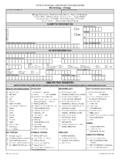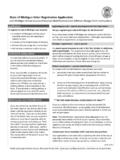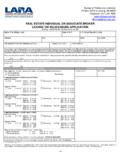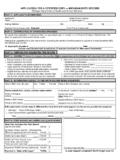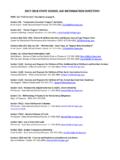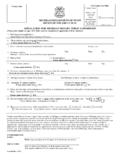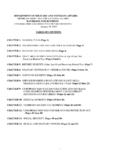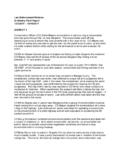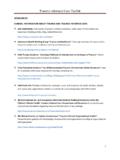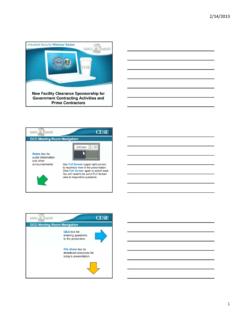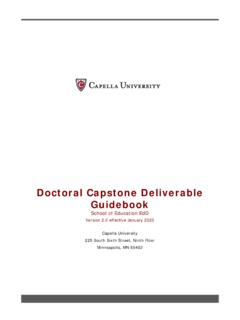Transcription of MATERNAL PLAN OF CARE PART 2 STRESS/DEPRESSION ...
1 MATERNAL PLAN OF CARE PART 2 STRESS/DEPRESSION Interventions by Risk Level Beneficiary: INTERVENTION LEVEL INTERVENTIONS Using Motivational Interviewing, complete the following brief interventions RESOURCE - REFERRAL - COMMUNICATION (Format dates: MM / DD / YY) MODERATE Date of Intervention Level Change: / / Identified mental health concern Currently being treated for mental health concern Moderate score (6-10) on Perceived Stress Scale Moderate score (9-12) on Edinburgh Postnatal Depression Scale Refused all interventions 1. Discuss perinatal anxiety and depression. Beneficiary s perception Educate on symptom presentation and treatment options Hormonal changes, Baby Blues vs.
2 Postpartum Depression 2. Discuss partner, family, friend, household member awareness of beneficiary symptoms and support. 3. Discuss stress reduction and self-care strategies. 4. Introduce and/or discuss Perinatal Depression Workbook. 5. Discuss and/or prepare action plan about self-care and/or postpartum support ( infant care, meals, going back to work). 6. Discuss childbirth expectations and/or experience. 7. Encourage beneficiary to join a community-based support group. 8. Encourage beneficiary/caregiver to communicate with primary care provider to discuss appropriate diagnostic assessment and treatment provider. 9. Re-administer Edinburgh Postnatal Depression Scale and discuss results with beneficiary.
3 Pregnancy: once per trimester (recommendation) Postpartum: every 3 months (recommendation) 10. Re-administer Perceived Stress Scale and discuss results with beneficiary. Pregnancy: once per trimester (recommendation) Postpartum: every 3 months (recommendation) RESOURCES Perinatal Depression Workbook (MIHP Website) Postpartum Support International Moms Mental Health Matters mental-health-matters/moms/ Michigan Statewide Perinatal Mood Disorder Coalition Other Resource: _____ REFERRALS Medical Care Provider (PCP, OB/GYN, etc.) Date: / / Did the beneficiary access referral? Yes No CMH for Infant Mental Health/Home-based Services Date: / / Did the beneficiary access referral?
4 Yes No Behavioral Health Provider: Date: / / Did the beneficiary access referral? Yes No Support Group: Date: / / Did the beneficiary access referral? Yes No MATERNAL PLAN OF CARE PART 2 STRESS/DEPRESSION Interventions by Risk Level INTERVENTION LEVEL INTERVENTIONS Using Motivational Interviewing, complete the following brief interventions RESOURCE - REFERRAL - COMMUNICATION (Format dates: MM / DD / YY) HIGH Date of Intervention Level Change: / / Currently being treated for mental health disorder High score (11-16) on Perceived Stress Scale High score (13 and above) on Edinburgh Postnatal Depression Scale Endorses suicidal ideation (question 10 on EPDS response anything other than Never ) Not following treatment recommendations In addition to MODERATE interventions: 11.
5 If beneficiary is currently in treatment, discuss treatment, medication adherence (if applicable), post-treatment plan and additional supports needed for success. 12. Refer beneficiary to appropriate behavioral health treatment provider, infant mental health service provider or community resource to discuss treatment options. 13. Assist in developing a safety plan. 14. Refer beneficiary to Medicaid Health Plan to assist in utilizing behavioral health benefit. 15. Assess for suicidal ideation or intent for self-harm. If present, refer for assessment by mental health professional. 16. If suicidal intent present, call 9-1-1 and/or ensure beneficiary has transportation to nearest emergency room.
6 Medicaid Health Plan (Case Manager, benefits, etc.) Date: / / Did the beneficiary access referral? Yes No Other Referral: Date: / / Did the beneficiary access referral? Yes No MIHP PROVIDER COMMUNICATION MIHP Communication with Medical Care Provider Date: / / MIHP Communication with Medicaid Health Plan Date: / /
